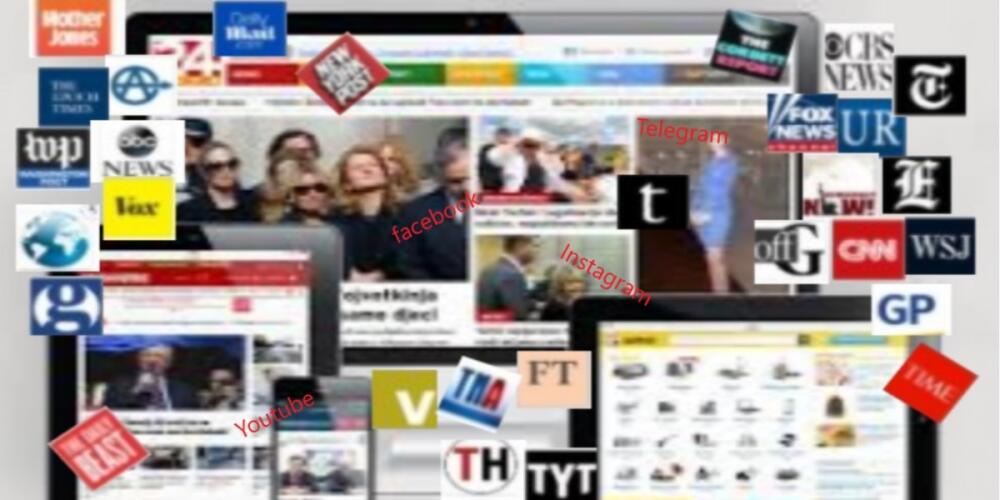
With the development of the Internet, the possibility arose for individuals to create their own electronic newspapers that competed with the print media. Such portals have begun to take on an increasing share of the media market. They also had the additional option of opening forums and chats on their portals where readers could open topics of interest to them, and comment on topics initiated by someone else. That is why most of the print media created their own portals. With the development of software tools, the possibility of commenting on newspaper articles appeared. As soon as this opportunity arose, the attendance of forums and chats dropped sharply.
With the advent of social networks such as Facebook, Instagram, Twitter and the like, an increasing number of users have moved to social networks where after registration they can write about what they want, and can watch and comment on other people's posts. As a result, visits to various forums by portals were further reduced, but new portals that anyone can set up with tens of thousands of dollars began to appear all the time.
And then the market battle between portals and social networks began.
The owners of the portal have started asking for a part of the money from the advertisements that social networks earn by sharing the content published in the portals.
Social networks responded to this pressure by launching a campaign against "fake news", "hate speech" and the like. In that fight, social networks themselves began to censor some of the posts that did not suit them. At the same time, through lobbyists, they began to strongly influence politicians to ban them from commenting on portals, thus moving users who like to write comments to social networks. And so in many states, laws have been enacted that severely penalize portals that do not delete fake news and hate speech. In order not to have to hire new people who will constantly monitor the comments, the vast majority of the portal has abolished the possibility of commenting below the texts. As a result, the portal's readership dropped, but many users continued to share texts from the portal on social networks and comment on them there. And there they cannot be punished because social networks are just a server to their members and do not have their own editorial team. Consequently, they have no responsibility for anyone's posts.
The direction in which the further war for users between social networks and portals will go depends mostly on the users themselves.
Ordinary users will certainly continue to post on social networks all kinds of posts and comments that often know and harm them, but more intelligent users, companies, interest groups, professional associations, chambers of commerce, television companies and similar organizations are increasingly realizing how social media big profits by selling them to advertising companies.
Many of these organizations are increasingly opening their closed social networks to which only employees of a company and their business partners, members of interest or professional associations and the like can register. Some of them are completely closed to the general public, while some can be read by anyone, but only members can open topics and comment. As a result, serious debates will shift to such closed social networks, while children, the poor and fake profiles will remain on large social networks, so-called trolls used by networks to spread jokes, satire, shame, fake news, or advertise their political views. and business ads.
The survival of large social networks mostly depends on large marketing agencies, which find it easiest to place advertisements of their clients on google, facebook, instagram, twitter and similar networks and search engines. When clients of such marketing agencies realize that the number of clicks coming to their ads, given to them by analytical software tools, is often not from real potential customers, but also from paid people who click on individual ads to order, the amount of money for advertising will decrease. through marketing agencies. This type of advertising is most suitable for global companies that sell their products all over the world, while smaller companies are more suited to advertising through media that operate only in the market that they cover with their products or services. And in the local market, some local portals often have a higher local readership than large social networks.
Tags
Featured articles
